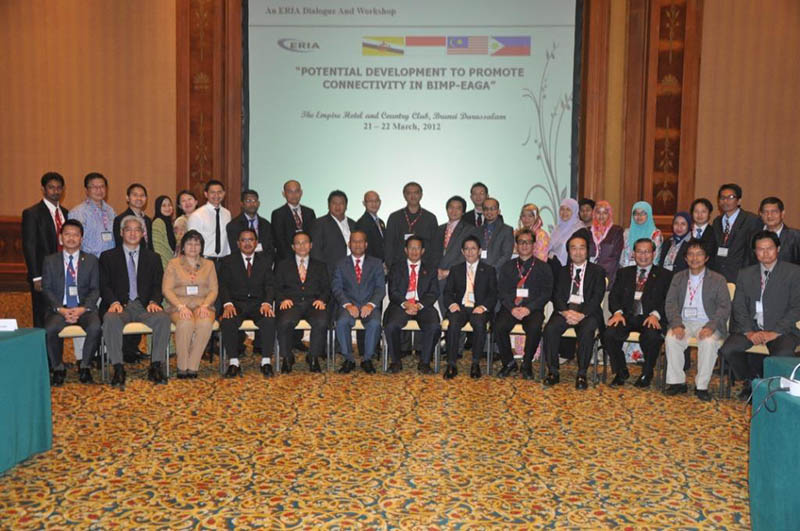How to Enhance the Connectivity on BIMP-EAGA?
Date:
22 March 2012Category:
Press ReleasesTopics:
ASEAN, BIMP-EAGA, Infrastructure, Regulation and Governance, WorkshopShare Article:
Print Article:
The workshop on "Potential Development to Promote Connectivity on BIMP-EAGA" was held on March 21st and 22nd, at Empire Hotel and Country Club in Brunei Darussalam. Over 40 participants, consisting of officials and private sectors from BIMP countries (Brunei Darussalam, Indonesia, Malaysia and Philippines) attended the workshop.
BIMP-EAGA (the Brunei Darussalam-Indonesia- Malaysia-Philippines East ASEAN Growth AREA) was formally launched on March 24, 1994 and aims to promote sustainable economic development in the ASEAN development process. ERIA held the workshop to comprehend the current status, to identify the issues, bottlenecks and potentiality, and come up with concrete further steps for enhancement of the connectivity in BIMP-EAGA through land, sea, and air transportation.
Participants discussed the efficient implementation of the transport Memorandums of Understanding (MoUs) in 2007 and exchanged views between official and private sector as well as expert from outside BIMP-EAGA countries like Thailand (Thammasat University) and JICA, about the challenges to expand the transport connectivity in BIMP-EAGA. The main issues that faced by BIMP countries are lack of awareness of MoUs and inconsistent domestic regulations which hamper to promote the transportation connectivity.
As the result, the workshop participants recognized the importance of communication exchange between related parties and data collections to make better strategies. BIMP-EAGA needs more government support for implementation & policy initiatives such as a single transport document for customs, immigration, quarantine and security purposes that can be used in all transport modes.
The outcome of this workshop could be incorporated into the Implementation Blueprint 2012-2016 and those main messages need to be conveyed to the policy makers and public in the BIMP countries, the other ASEAN member states and the ASEAN dialogue partners.








